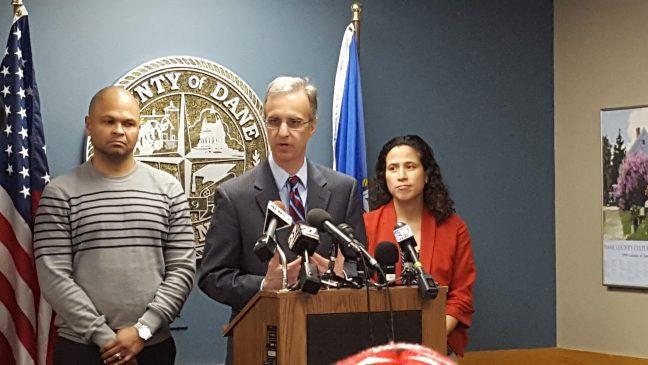Following growing demand for more mental health services in the community, Dane County has begun taking proactive steps to increase mental and behavioral health resources for residents.
In a press release from the Dane County Executive Office, Dane County announced it is accepting proposals targeting behavioral health needs until April 8. Dane County Executive Joe Parisi said this step coincides with other recent policy initiatives rolled out over the past few months and a passed budget of $500,000 to increase mental and behavioral health accessibility.
Parisi said the results of a behavioral health needs study in Oct. 2019 revealed Dane County lacks services needed to help individuals undergoing mental health crises.
“They kind of reaffirmed that access is really key to doing a better job, so that is we have been focusing on access before it and ever more after it,” Parisi said.
Parisi said Dane County began working on a new initiative to create a Behavioral Health Resource Center, which will begin next summer. People can call the behavioral resource center when they don’t know where to go during a mental health crisis, Parisi said.
Parisi said anyone who calls the center will “stick” in the system for at least 30 days while the center helps connect them to a mental health provider.
The National Alliance for Mental Illness Dane County chapter provides mental health services to youth. Dane County NAMI Executive Director Anna Moffit said the county needs more services to meet the young people’s growing needs.
“I think the situation for youth mental health is actually worse than for adult mental health,” Moffit said.
Moffit said young people have far fewer providers and far less services available.
According to Moffit, the wait-time for people to get into programs can be as long as eight months, and directing individuals to peer support, like NAMI, because providers are booked, is only a short-term solution.
“We know that mental illness presents much earlier on than people initially thought,” Moffit said. “In the past, we thought, oh it’s just a moody teenager. In fact, now we know this could be the onset of depressive disorder or mood disorder or anxiety disorder.”
Moffit also said among youth and children, rates of self-harm, suicide and mental diagnoses have steadily grown. According to the American Psychological Association, from 1999 to 2017, suicide rates in the United States rose by 33%.
Parisi said a lot of young people, particularly those who have lived in poverty, experience a lot of trauma — it’s important for them to have access to mental health assistance, including staff trained to recognize signs of trauma, so they can help them get connected to services they need.
“We’re doing our best to make it available wherever the kids are at,” Parisi said. “We are providing trauma-informed training free of charge to community center staff and volunteers.”
Dane County, in conjunction with area schools, started Building Bridges, a mental health program to put mental health providers in schools. The behavioral health center initiative builds on that to make services more available across the community.
Parisi said accessing mental and behavioral health resources can be challenging for those both with and without insurance. Parisi said Dane County is working to ensure access to mental health aligns with the needs of the community, as some community centers may prefer peer specialists over therapists, or vice versa.
“Listening to the community and being in touch with the needs of the community and meeting with people to ask them what they’re experiencing and what their needs are,” Parisi said. “That is directly how the Building Bridges schools base mental health teams.”
According to Moffit, Dane County’s efforts toward increased mental health access and services will continue to build the county’s capacity to meet the behavioral needs of individuals in the community.
In Nov. 2019, the Dane County Executive Office announced a policy proposal to create a Universal Access Resource Center and a Universal Access Work Group to boost mental and behavioral health services in Dane County.
“The creation of the Universal Access Work Group as well as the Behavioral Health Resource Center means that not only are we building our capacity, we are building better systems,” Moffit said.
But Moffit said Dane County still faces other mental health services challenges. According to Moffit, navigating the behavioral health system can be difficult and confusing for community members.
Moffit said mental health call centers will bridge the gap between the community and mental and behavioral health care providers so individuals, especially youth, can get the help they need. But Moffit said Dane County still lacks diverse providers.
“We have a lack of prescribers, and that’s not something you can fix overnight, obviously, because people have to do a considerable amount of schooling to get to that level,” Moffit said. “We’re very happy that work is moving forward. Especially now, with everything that’s going on, we know that there’s going to be an increased need for support for folks dealing with this challenging time.”


